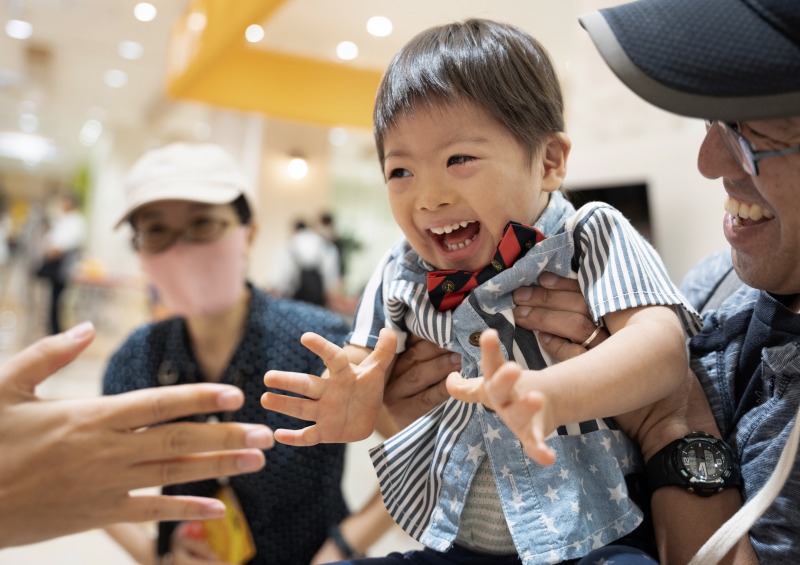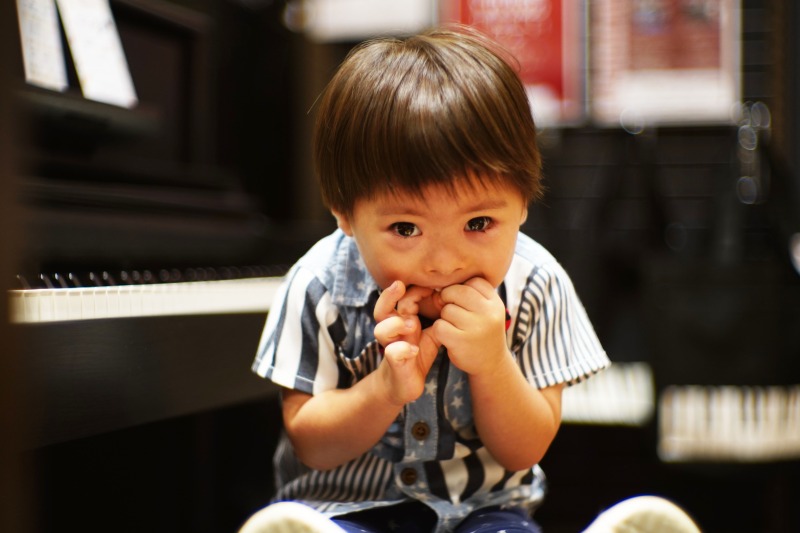My son is a Model: How Colorful Models changed Yu’s life
Hello everyone! I’m Daniela, an intern at Colorful Kids Models with a passion for inclusion and innovation. Diagnosed with diabetes at a young age, I’ve always understood the importance of celebrating diversity and creating opportunities for everyone to shine. Colourful Kids Models’ mission deeply resonated with me, and when the chance to write this blog arose, it felt like a chance to contribute to something truly special. This blog is a glimpse into their world, and I hope as you read it, you’ll feel the same spark of inspiration that filled me while writing it.
_____
Forget everything you think you know about modelling. Today’s interview shines a light on the remarkable story of a mother that is shattering stereotypes and celebrates inclusivity through her son, Yu. Forget perfect poses and trendy clothes – their journey with Colorful Kids Models is about proving that beauty comes in all forms, and that the strength of family love can break down any barrier.
_____

How did you first discover Colorful Kid Models?
I first learned about Colorful Kid Models through an article in a magazine. Before joining the company, my husband and I spent considerable time discussing whether it would be beneficial for our son to become a model. Ultimately, we agreed with Mrs. Uchiki, the CEO of this disabled model agency, that it would be a wonderful opportunity.
In Japan, awareness about people with disabilities is limited, and education is often separated from a young age. When we started looking for a kindergarten, many schools rejected us because our son has Down syndrome. This situation convinced us that he should become a model to help create an inclusive society and break down these barriers.
How has being part of the company changed or impacted your life?
Being part of Colorful Kid Models has significantly changed our lives. My son, who has Down syndrome, is now a public model, which is unbelievable! This transformation is all thanks to Mrs. Uchiki, who actively promotes an inclusive society through various media channels. We are very proud and share this achievement with all our friends and family. My sister has also become very interested in Mrs. Uchiki’s activities. Learning about her work has shown us that individuals with disabilities have many possibilities and unique perspectives. Her efforts go beyond just displaying pictures; she creates opportunities for non-disabled people to interact with those who are disabled, fostering genuine connections. Mrs. Uchiki wants people to see and understand their behaviors and who they truly are, and I am incredibly impressed with how she accomplishes this.
Could you share a memorable moment or experience that illustrates the impact Colorful Kid Models has had on your child and your family?
Last year, we participated in a photo contest organized by Colorful Kid Models for the first time, and my son’s picture won a prize from a well-known Japanese actor. It was a joyous moment, and having the opportunity to share this with my family, friends, and teachers meant a lot to me.
Can you share a bit about your son? What are some of his talents and interests, or activities he enjoys in his free time?
He loves listening to music and dancing. He also enjoys eating various foods, though he dislikes green peppers, which is quite typical for children his age. He smiles a lot and makes us laugh, he’s a very happy child.
Education about disabilities is crucial for raising awareness. Could you please tell us about your son’s specific disability and its characteristics to help broaden understanding?
He has Down syndrome, which makes him physically weaker. However, he has started walking, though in a slightly unique way, and has recently begun talking. He speaks slowly and uses only a few words, but we are very proud of him.
Could you share with us the experience of raising a disabled child, including both the challenges you’ve faced and the moments of joy and fulfillment?
He’s the cutest and always makes us laugh. He understands how to help others. Once, when I pretended to cry, he immediately came to comfort me. He is very kind. His presence also has opened doors for us to experience unique opportunities, such as this interview.

What changes did you need to adapt to when raising a child with a disability?
We had to change many things and broaden our perspective. In college, I was interested in physical disabilities and worked part-time caring for adults with cerebral palsy and those using wheelchairs. I also volunteered with intellectually disabled individuals but struggled to communicate with them. When my son was diagnosed with Down syndrome at six months, I was surprised and fearful. I studied extensively, read many books, and found positive information like Colorful Kid Models. Despite many kindergartens rejecting him, I now understand more about intellectual disabilities and advocate for inclusive education. This journey has taught me a lot, and I want to share my knowledge.
What made you interested in working with physically disabled people during your college?
When I was very young, I saw a man walking strangely at a train station. My mom told me not to stare at him, but I didn’t understand why. This incident sparked my interest in learning how to communicate with disabled people. I learned that every individual is unique, regardless of their disability. Now, with my son having Down syndrome, I feel I was somewhat prepared for this journey.
The term disabled often carries negative connotations. What are your thoughts on this, and do you feel there’s a need for a shift in language?
I agree that many words related to disability should change to more positive ones. I’d love to see terms like “miracle person” being used. Language is crucial, and finding the right words can help change perceptions and promote understanding. In Japanese, we have already changed words describing blind and deaf people, so there is definitely a possibility for change.
As someone pioneering awareness for disability representation in Japan, what advice would you offer to parents who may still feel hesitant about fully embracing their child’s disability?
I would tell them they are not alone, we are in this together. Having negative feelings is normal, and it’s okay to feel that way. However, there are many joys and positive experiences in raising a disabled child. Embrace and enjoy your child.
What are your hopes and aspirations for yourself and society by being part of Colorful Kid Models? What positive changes do you envision?
I hope for an inclusive society with inclusive education. I want to educate others and encourage interest in disabled people, as they are an integral part of society. I want people to understand and connect with disabled individuals naturally.
_____
This interview wasn’t just with Yu’s mother; her sister’s presence beautifully showcased the supportive family dynamic,something that truly warms my heart. We’ve been delving into heartwarming family stories, but next time, we’re taking you to the Colorful Models photo shoot. Get ready for a peek behind the scenes!
Check Daniela’s other articles:
- From Isolation to Inspiration: How a Mom Built a Company for Children with Disabilities
- Beyond Autism Spectrum Disorder: Ruka’s Mom Journey of Acceptance and Growth
- A Symphony of Joy: Asato’s Journey and the Fight for Disability Representation
- Colorful Kids Captured: A Look Behind the Scenes of Inclusive Photoshoots

